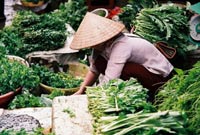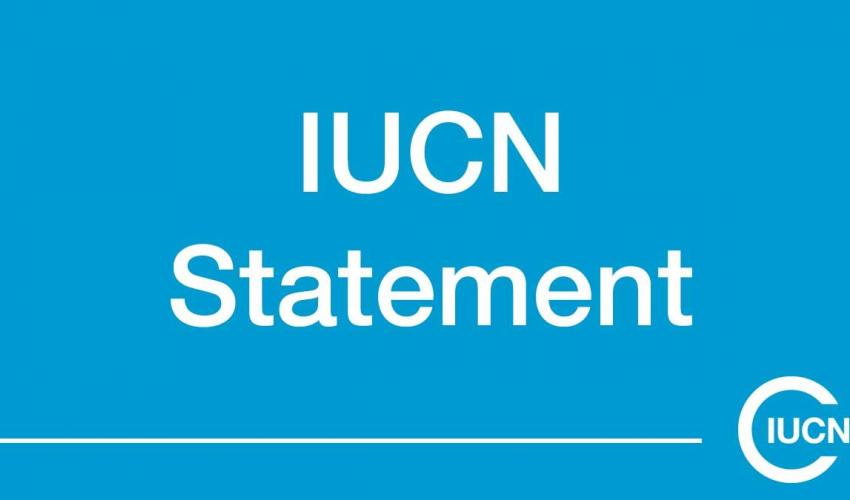Indigenous Voice on Agrobiodiversity and Food Sovereignty
Many may not know them, but there are several indigenous communities seeking to revitalize indigenous peoples' food systems and thereby define the food and agriculture of their choice; these are the real champions and stewards of agrobiodiversity.

Photo:
The Indigenous Partnership for Agrobiodiversity and Food Sovereignty is being established to seek out such groups. It is also expected to bring together indigenous communities, scientists and policy researchers to work together for agricultural systems with lower carbon and ecological footprints.
The Indigenous Partnership for Agrobiodiversity and Food Sovereignty is being led by an indigenous professional and three indigenous organizations together with the Platform for Agrobiodiversity Research (PAR) and Bioversity International ( Rome, Italy), the International Institute for Environment and Development (IIED) (London, England) and Slow Food International (Bra, Italy).
The Partnership's first activity was to hold an International Scoping Workshop from 3 to 5 May 2010 in Cusco, Peru within the vicinity of the Andean Potato Park ( Parque de la Papa ), an Indigenous Bio-Cultural Heritage Area. The Potato Park seeks to protect the vast knowledge, culture, resources and rights of the land and people who inhabit it.
In June 2010 Phrang Roy, Coordinator of the Partnership, along with Shayna Bailey, Director International Development of Slow Food International visited Vanuatu to meet with some local champions of local food systems and to understand their unique ways of living in harmony with the natural environment for thousands of years. They also presented the Partnership to the meeting of the Melanesian Indigenous Land Defense Alliance (MILDA), which resolved in the meeting to defend the continued control of Melanesian communities over their lands and territories.
Following their Vanuatu visit members of the Te Waka Kai Ora , a Maori organization that promotes the unique qualities of local Maori food and medicines invited the Partnership team to visit them in New Zealand. They visited the Endowed College at Waikato and a few surrounding community projects, including a traditional health clinic and a Native Trade Event. During their sojourn they discovered the research work of Professor Linda Tuhiwai Smith, Pro-Vice Chancellor Maori, Waikato University to stimulate knowledge exchange between the Maori and western science, which is indeed one of the approaches strongly recommended by the Cusco Scoping Workshop.
The Partnership team also had a chance to meet Maori Elder Percy Tipene and others who try to promote life advancement of the New Zealand's Northland people by assisting Maori landowners to gain returns from their land in a manner that is culturally appropriate and sustainable for future Maori generations. At Waikato, they learned about an Annual Festival where people bring their best food forward in order to create a joyful period to highlight the marvels of Maori food traditions and treasures. They also heard of attempts by some Maori organic producers to build a system of validation based on Maori standards.
Returning to Italy, the Partnership team they were reminded by the indigenous communities of Vanuatu and New Zealand that land and indigenous foods are essentially about livelihoods, cultural and linguistic identity and the promotion of agrobiodiversity to over come the many challenges of today, including climate change.
The Indigenous Partnership for Agrobiodiversity and Food Sovereignty currently involves Biodiversity International, Slow Food , the International Institute for Environment and Development (IIED) and three indigenous organizations Tebtebba, ANDES and Vanuatu Cultural Centre.
For more information contact:
Phrang Roy
Coordinator, Indigenous Partnership for Agrobiodiversity and Food Sovereignty
Email: phrangroy@hotmail.com
Global Partnerships Programme
Bioversity International
- Via dei Tre Denari 472/a
- 00057 Maccarese (Fiumicino), Rome, Italy
- Email: e.fox@cgiar.org
- Tel: +39 06 6118 272 Fax: +39 06 61979661
- http://www.agrobiodiversityplatform.org
Additional Resources:
- Video interview with Phrang Roy during his visit in New Zealand
- Interview with Shayna Bailey, Slow Food in New Zealand
- Article: Slow Food International teams up with TWKO
Also this recent news bite on Slow Food about the Indigenous Partnership for Agrobiodiversity and Food Sovereignty may be of interest:



